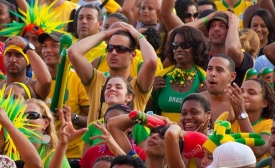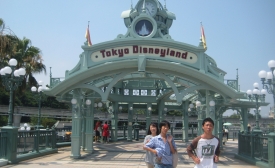culture
Albert Royo-Mariné, secretary general of the Public Diplomacy Council of Catalonia, a government-supported group that seeks to raise awareness about Catalonia, says that regardless of its outcome, the Scottish referendum is a "victory for democracy and common sense, and thus, it is a great example to Catalans."

The diplomatic impasse between the United States and Iran is officially broken after thirty-four years of mutual recriminations and mistrust. The need for a reinvigorated U.S. public diplomacy is essential to forge a new relationship based on respect, understanding, and shared political, social, and economic interests. “Gangnam Style” public diplomacy is a simultaneous multiplatform approach to information sharing and engagement that utilizes various programs to stimulate people-to-people connections based on culture, education, and business.
A new index, which attempts to rank the countries of the world by their “goodness,” is turning heads. “What the Index does aim to do is to start a global discussion about how countries can balance their duty to their own citizens with their responsibility to the wider world, because this is essential for the future of humanity and the health of our planet,” said Anholt.
Culture can play a crucial role in diplomacy, according to the director general of the Centre for Fine Arts (Bozar) in Brussels. In an interview with New Europe, Paul Dujardin, who also serves as the centre’s artistic director, described culture as a “soft power”.
On June 26, 2014, Wilton Park published a report on their recent conference, Maximising Soft Power Assets: Towards Prosperity, which was held at the Hacienda Cantalagua, Mexico in May.
The report highlights the following key points of the conference:
A new brand campaign from Tahiti Tourisme seeks to establish a deeper mystique lying beneath the surface of the “picture postcard” beauty of the destination. With the rise of competition in the Pacific from such island destinations as Fiji and the Cooks, Tahiti Tourisme saw a need to create more differentiation. The branding is global and not specific to any particular market.

The World Cup might not be all hearts and roses for Brazil.

A recent book from Martha Bayles, a lecturer in humanities at Boston College, tackles the question of how American entertainment industry products confound official U.S.







